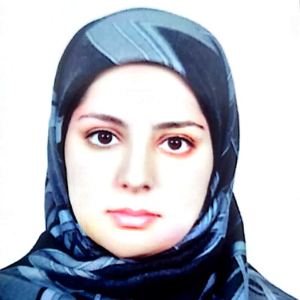Title : Memory and Executive Functioning Outcomes of Selective Amygdalohippocampectomy in Patients with Hippocampal Sclerosis: A Preliminary Study in a Developing Country
Abstract:
Introduction: Selective amygdalohippocampectomy (SA) is an effective treatment for drug-resistant cases of epilepsy due to hippocampal sclerosis (HS). However, its neurocognitive outcomes are inconsistent across previous studies, pointing to potential location-specific confounders. Here, we investigated the neurocognitive outcomes of selective amygdalohippocampectomy in an Iranian center recently adopting this approach.
Material and methods: Thirty adults (53.3% female, age 31.4 ± 6.2 years) with drug-resistant epilepsy due to HS were included. Patients were stratified into surgical (N=15) and medical (N=15) treatment groups based on their preferences. Neurocognitive function was assessed before and six months after intervention using Wisconsin Card Sorting Test (WCST), Wechsler Adult Intelligence Scale-Revised, and Wechsler Memory Scale-Third Edition (WMS-III). Post-intervention performance changes were compared between the two groups, and predictors of worse postoperative outcomes were investigated.
Results: Longitudinal changes of performance in WMS-III and WCST were significantly different between the surgically- and medically-treated patients. Postoperative WMS-III performance showed an average 25% decline (mean ?T2-T1 = -25.1%, T = -6.6, p < 0.001), and WCST performance improved by an average of 49% (mean ?T2-T1 = +49.1%, T = 4.6, p < 0.001). The decline in memory performance was more severe in left-sided surgery, and in patients with higher baseline education (mean ?T2-T1 = -31.1%, T = -8.9, p < 0.001).
Conclusions: In our center, executive functioning improved or remained stable after SA, but memory functions declined moderately. Left-sided SA and higher education were associated with more severe decline in memory functions, highlighting the need for special considerations for these groups.
What will audience learn from your presentation?
- At the time of the neurocognitive assessment (6 months after surgery), 9 patients (60%) were seizure-free and assigned to Engel class I, and 7 patients (46.7%) were Engel Ia. Four patients (26.7%) were class II, and class III was achieved in 2 patients (13.3%).
- In this prospective cohort on neurocognitive outcomes of SA surgery which was performed in an Iranian center recently adopting this approach, we showed that SA is generally safe or beneficial with regard to executive functioning but can lead to moderately impaired memory functions.
- The decline in memory functions was more severe in patients with higher education and those undergoing left-sided SA, highlighting the importance of additional considerations before selecting these patients for the surgery.
- In addition, a significant decline in memory scores seems to be associated with favorable seizure outcomes. Furthermore, this finding points to the need for identifying data-driven biological, imaging, or clinical predictors of post-SA neurocognitive outcomes.




